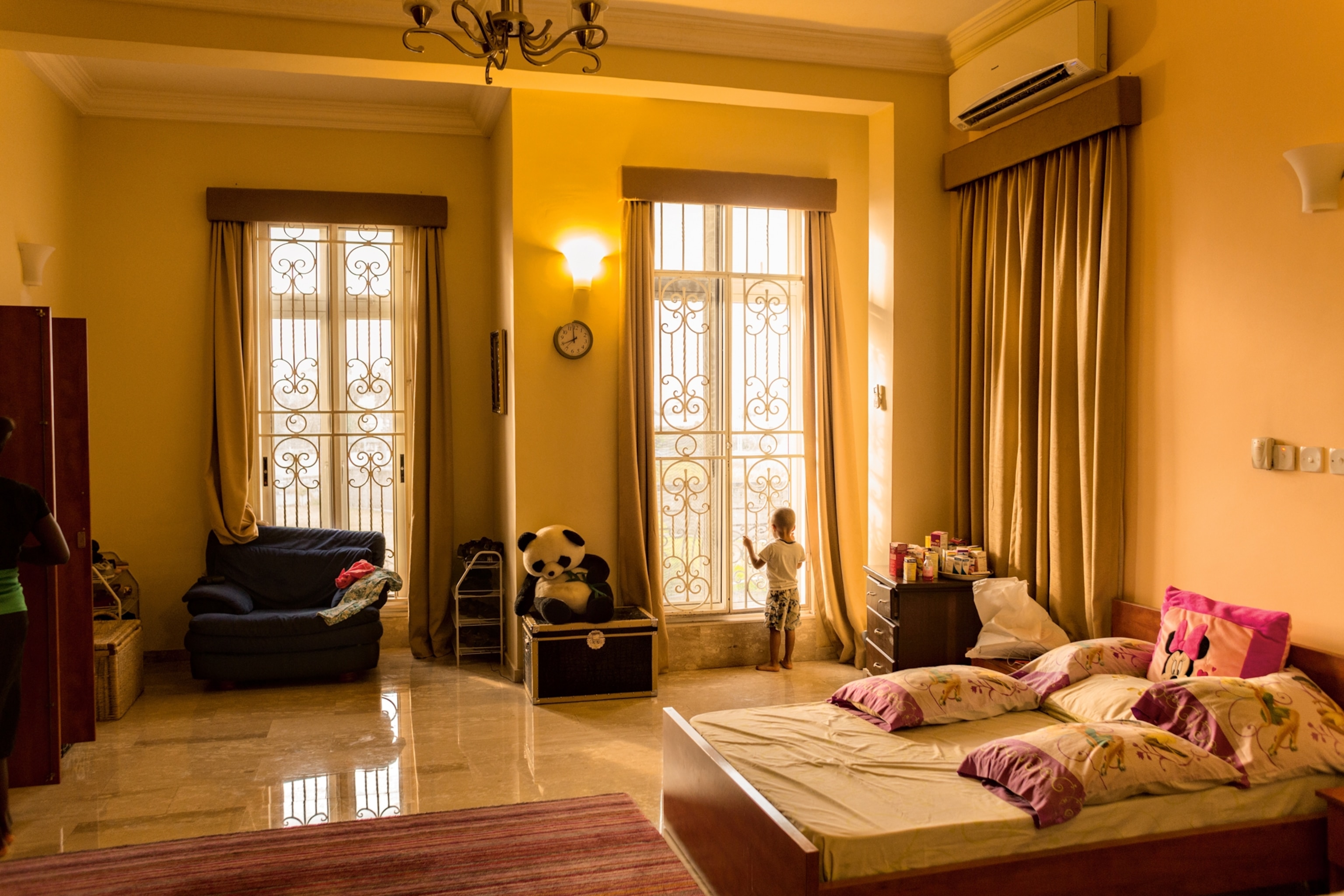How Lagos has become Africa’s boom town
The city is bursting with a get-rich spirit that has made Nigeria’s economy the continent’s largest.
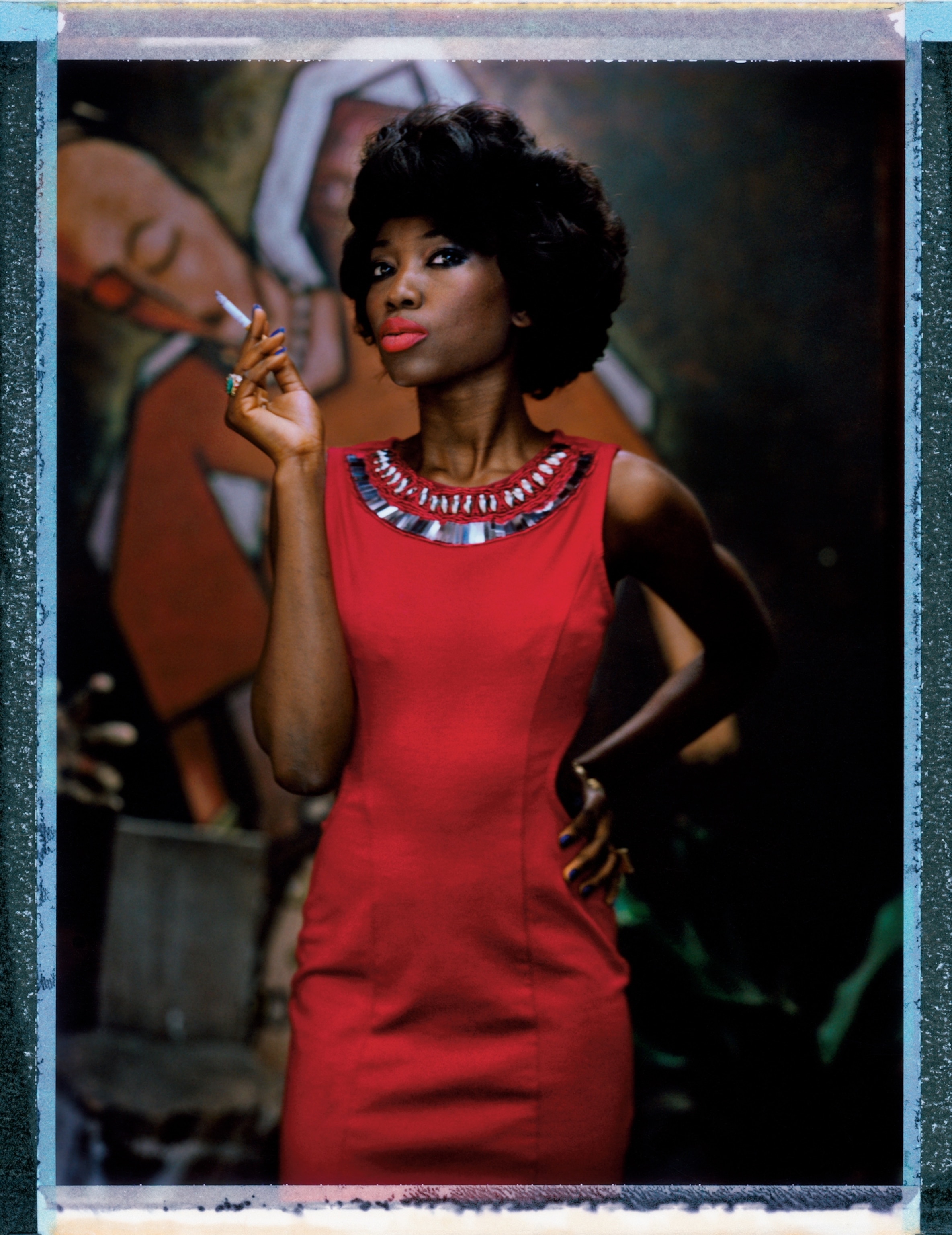
When he was 15 years old, David Adeoti worked in an Internet café in blue-collar Satellite Town, where it was almost possible to see the gleaming towers of Lagos Island less than ten miles to the east.
Satellite Town was a step up for Adeoti. His birthplace was off to the north in Orile, a wretched village of flooded streets and collapsing buildings. Technology had provided his way out. The Internet café in Satellite Town was run as a side business by a banker, who saw that the boy had a natural facility for computers—even the shop’s ancient desktops, which operated at lurching speeds. The banker paid Adeoti a little more than $200 a month to run the place. Adeoti spent his money on courses at a technical institute, determined that the Internet café would not be the end of the line for him.
One day in 2010 the shop’s customers looked up from the computers to see who had just walked in the door with the mannered British accent. His name was Jason Njoku, a bespectacled 30-year-old Londoner who had relocated to his ancestral homeland of Nigeria. Njoku asked Adeoti if he could scan some documents. While Adeoti operated the scanner, the genteel visitor mentioned that he was trying to find investors for a new business venture and asked the Internet café manager if he enjoyed his job. They exchanged cell phone numbers. A few months later Adeoti inquired about a job and was invited to Njoku’s apartment. Adeoti walked inside to find six young men wedged behind desks with computer cables snaked around their feet as they typed. This, Njoku informed Adeoti, was his new business: an indigenous version of Netflix that would stream movies to Nigerian computers and bring Nigerian movies to the world. Njoku needed someone like Adeoti to convert “Nollywood” DVDs into a YouTube format. As was evident by the cramped environs, the project was perilously low on money. Adeoti signed on anyway, thinking, It’s going to sell itself.

When I met David Adeoti in spring 2014, he was 24 and wearing an elegant knit shirt and designer jeans while sitting behind a Mac laptop in the sleek three-story office that now houses iROKOtv in Lagos. Njoku’s company has about 80 employees, with additional offices in Johannesburg, London, and New York City. Adeoti makes twice the salary he made as the manager at the Internet café. But all this exposure to money and movies had whetted his appetite for more of both. “I plan on starting my own business—something in the film industry,” he told me. He was saving money to travel to Hollywood. He wants to be a cinematographer—and perhaps one day, a Nollywood studio executive.
“It’s a very far distance from middle class to being rich,” Adeoti said. With a widening grin, he added, “But the middle class, we strive. Everyone is very desperate to be very rich these days.”
Almost anywhere else in the developing world, such a sentiment would seem pitiably delusional. In Lagos, Nigeria’s commercial center, “Be Very Rich” has all but become the city’s motto. The country recently recalculated its gross domestic product to take into account sectors of the economy that barely existed two decades ago. As a result, Nigeria determined that its GDP surpassed South Africa’s in 2012 to become the continent’s largest economy. About 15,700 millionaires and a handful of billionaires live in Nigeria, more than 60 percent of them in Lagos.
As with other African metropolises, oil-enriched Lagos has long nurtured an elite class only marginally inconvenienced by the squalor enveloping the city as a whole. Now the upper class is expanding, and despite persistent income inequality, so is the middle class. The growth of the latter in Nigeria, according to a 2013 survey by Ciuci Consulting, a strategy and marketing firm in Lagos, is driven by the expanding banking, telecommunications, and services sectors, particularly in Lagos. Nigeria’s middle class grew from 480,000 in 1990 to 4.1 million in 2014, or 11 percent of households. Seemingly overnight, Lagos has transformed itself into a city of Davids clamoring to become Goliaths.
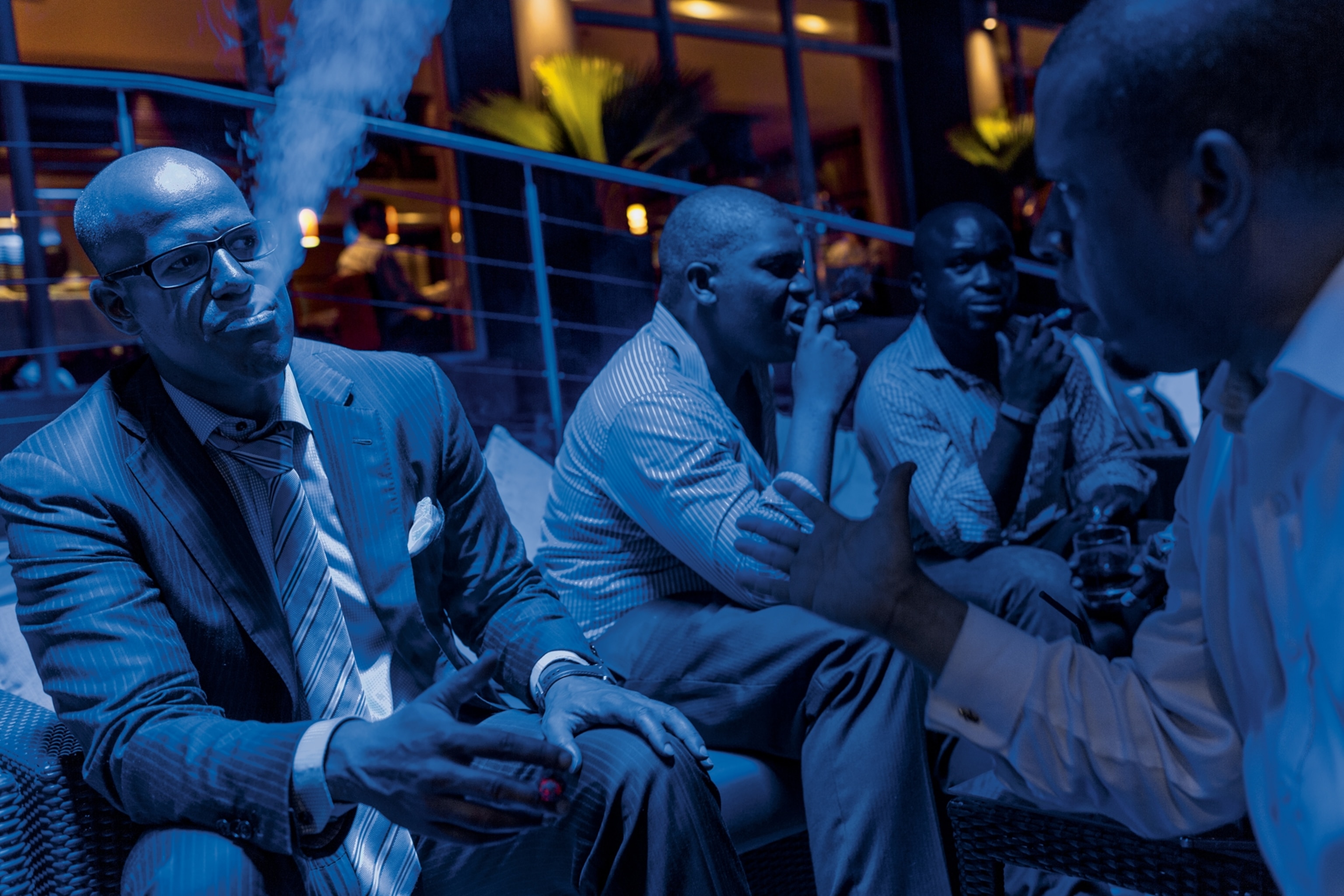
This is a great African success story. And how lovely it would be to tell this bright, uplifting tale while ignoring altogether the dark and demoralizing saga of Nigeria’s grotesque terrorists, which has blocked the boomtown narrative from the world’s consciousness like a lunar eclipse. But Lagos does not exist in a parallel universe, any more than the Islamic extremist group Boko Haram does. Both are indigenous to Nigeria, a vast West African nation teeming with industrious strivers like Adeoti but also with poverty, despair, and violence. If anything, the miracle of Lagos is that its economy gallops onward even when fettered by the same federal incompetence that allows terrorism to go unchecked. A lesser city would be crippled. Then again, in a sense so is Lagos.
“Nigeria’s problem and Lagos’s problem is its image. That’s the chief problem. You’d think you were in a war zone in Afghanistan when you read what you read about here! But tell me: Have you felt any threat?”
No, I confessed to Kola Karim, the dashing 45-year-old multimillionaire and CEO of Shoreline Energy International, a food/energy/telecommunications/construction conglomerate with more than 3,000 employees. I felt quite safe in Lagos—a pleasant surprise, given that I had boarded my flight to the city on the same day that dozens were killed in a bomb blast at a bus depot in the capital city of Abuja. It was the latest in a string of terrorist episodes for which Boko Haram had taken credit. But Lagos had been spared from such incidents, so far. The violence felt a country away—like a bad dream washed from memory after a morning’s shower.
“Look, I was invited to the White House a few weeks ago,” Karim went on, his British-educated diction edged with exasperation. “There were 21 of us—young global leaders of the World Economic Forum. I told them, ‘You’re always viewing things from a national security angle rather than commercial viability. You invite African businessmen over, and all you want to know about is al Qaeda. Why are you wasting my time to come all the way here to listen to the same old gibberish?’ ”

Karim makes it his business to evangelize about the Lagos miracle in which he has played a notable role. Later in the day a French TV station would be filming Karim playing polo as a way of showcasing the city’s prosperity. The following week he would be at the Milken Institute in Santa Monica, giving a speech about Africa’s power sector. Karim has delivered similar talks at Harvard and Yale, part of what he refers to as his “moral duty to promote Nigeria and Lagos.” When I joked that he could be making big money on the speaking circuit, the Lagos entrepreneur solemnly replied, “I will start charging money when the world has heard our story.”
Here is the story, in brief. Following centuries of tribal rule by territorial kings and emperors and 99 years of British colonial rule, Nigeria achieved independence in 1960 and was intermittently ruled by military heads of state until 1999, when it at last achieved a rickety state of democracy. Among its 36 states, Lagos—which includes the sprawling port city of the same name—was ever the country’s center of power, even when the federal capital was relocated in 1991 to Abuja, a 450-mile drive away. Still, Lagos deteriorated under decades of military rule. Its schools, roads, and hospitals went to seed. Western investors kept their distance. When Karim returned from England to his birthplace in 1996 to build on the family cocoa business, there were very few of his kind, “because,” he told me, “it wasn’t an open economy, and financial services were few. Back then the total capital of a bank was maybe two million dollars. Imagine you want to do business in Lagos. How much can a bank like that possibly lend you? Fast-forward to today—they’ll lend you up to $500 million!”


What happened to Lagos stemmed from a convergence of two phenomena. First, after knowing only political incompetence, the newly democratized Lagosians elected a pair of remarkably consequential state governors: former accountant Bola Tinubu in 1999, and in 2007 his handpicked successor, Babatunde Fashola, who has been credited with helping quash an Ebola outbreak in Lagos. The two executives restored some fiscal sanity to Lagos while investing in bridges and expressways. Meanwhile a reverse diaspora transpired as native Nigerians began to return home. When the worldwide recession foreclosed opportunity in Europe and America, Lagos offered itself as a new frontier for ambitious entrepreneurs. One of them, Lanre Akinlagun, told me, “Back in the U.K., all of my friends started moving back to Lagos. When they’d return to visit, we’d meet in a bar, and they’d buy a round of shots. But then later they’d come back and order up bottles of the most expensive stuff. I told myself, OK, something’s going on here.”
On the Atlantic coast and consisting of a slab of mainland around a lagoon and several islands, Lagos today is an ad hoc ecosystem thrashing with wealth seekers. Tourism is largely absent here—one comes to Lagos strictly to do business—and yet at the same time it is a strangely inviting place, a city of optimists.

That is not to suggest that life in Lagos is a smooth ride. As with all boomtowns, the city is at pains to keep up with itself. Lagos’s population is growing so fast and is so transient that it’s impossible to estimate the number of inhabitants more precisely than between 13 million and 18 million. The hubs of commerce are the two small islands of Lagos and Victoria, and only the very wealthy can afford to live there. While developers swoop down on every last sliver of marshland, forest, and landfill (and in the case of the ultra-elite planned city of Eko Atlantic, 3.5 square miles of land recovered from the ocean), ambitious Lagosians struggle to reconcile their status consciousness with the absurd price of central housing and the 20 percent interest that banks commonly charge for mortgage loans. Invariably, Lagosians settle on a flat somewhere on the mainland, which means enduring commutes through grinding traffic that can exceed two hours each way. Or it means waiting out the gridlock over beers and cigars with fellow young Turks at a bar somewhere on the islands—a fraternal spectacle as endemic to Lagos as the traffic snarls themselves.
I sat one late afternoon in one of those bars with a half dozen well-dressed bankers in their 30s, a daily congregation of gentlemen who have perfected the art of boozy time-wasting. One of them, an especially talkative fellow, told me that a flat on the island would cost four times the amount he had paid for his house on the mainland. “If I had the right kind of income, of course I’d live on the island,” he said. “If I lived on the island, I’d go home, check my boys’ homework assignments, play some computer games with them, maybe take my wife out for dinner. During the week I can’t do that.”
The young banker then laughed off his predicament and called out for another round.
A recent survey of middle-class Nigerians conducted by Renaissance Capital, an investment bank, found that 76 percent of them are optimistic about the country’s future. Sunniness of outlook has deep roots in Nigeria, particularly so in Lagos, a land of traders and settlers, and thus of industrious disposition. Lagosians believe themselves to be pluckier than the average West African. This is, if anything, a modest self-assessment. The man I hired to drive me around during my three weeks in Lagos, Daniel Sunday, took me one day to the neighborhood where he was born and raised: Makoko, a fetid shantytown on stilts in Lagos Lagoon that is mordantly referred to as the “Venice of Africa.” Sunday told me that he left the shabby family home when he was a teenager and found work as a bus conductor. He slept on his boss’s floor and after a few years had accumulated enough money to buy his first car. Now he was married, with a residence on the mainland, and for two hours each morning he uncomplainingly chauffeured customers like me around the commercial districts. The motto on Sunday’s business card was “In God I Trust.”
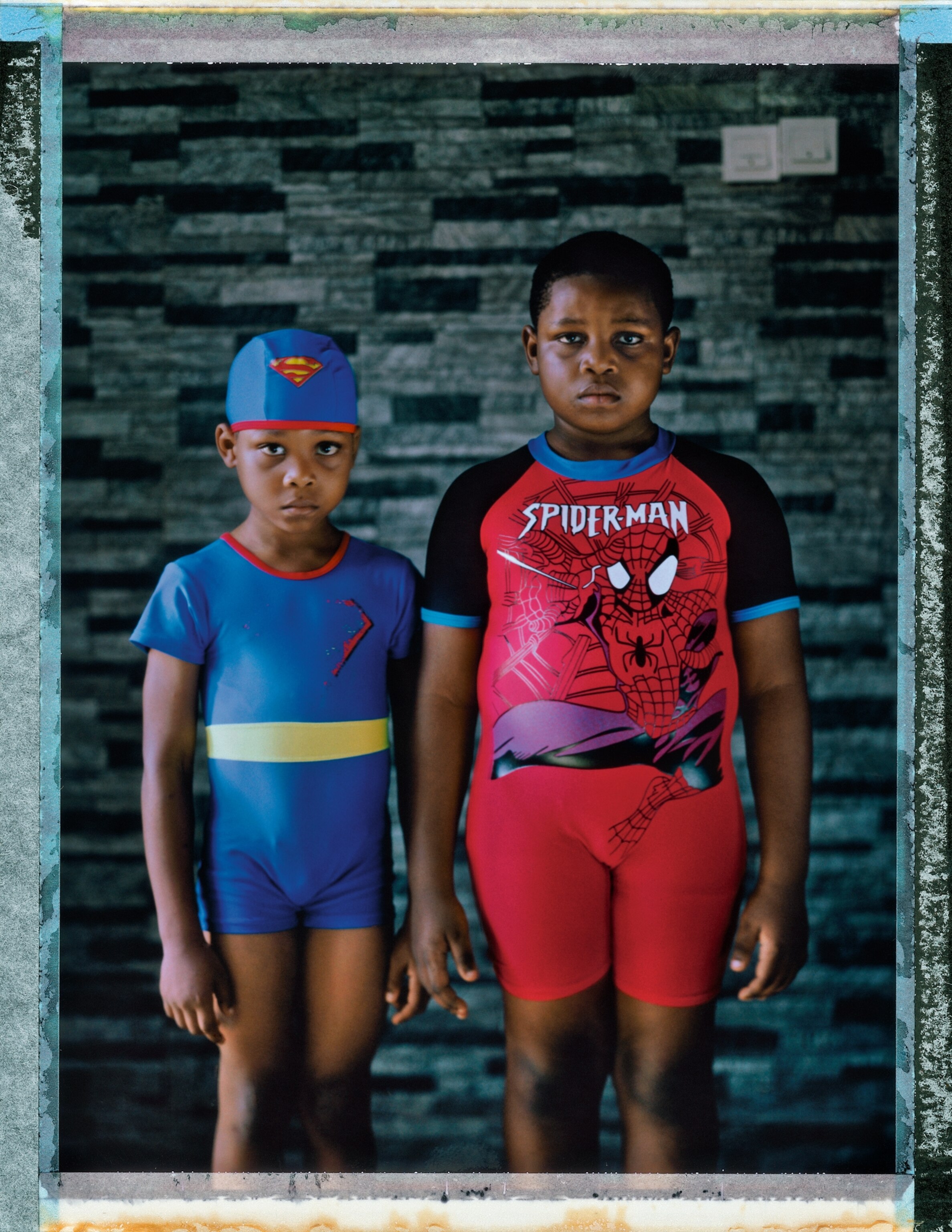
“If you give a Nigerian an opportunity, he will do his best,” a 36-year-old man named Onyekachi Chiagozie proclaimed one hot afternoon as he proudly showed me his mobile electrician’s workshop. In truth, the hollowed-out van with the cracked windshield wasn’t much to look at. Chiagozie had bought the used van for about $4,300, and with it he could drive his tools all over the city, an enabler and beneficiary of Lagos’s construction boom.
All of this was an improbable outcome for a young man who, at 18, became an unpaid apprentice to an electrician and worked odd jobs to survive. For a time he slept in a bus stop. He owned what he was wearing and nothing else. After about four years Chiagozie scraped together enough money to rent a tiny house in the mixed-income neighborhood of Ojota, where he had apprenticed. “Save, save, save: I’ve made the sacrifice, and it’s started to pay off,” he recalled. “I registered my company. People in the area knew me. I’d fix this socket or see why that light wasn’t turning on. The customers grew to trust me. Then they started getting me good jobs. Wiring whole houses. Fixing ATMs and air conditioners. And because in Lagos it’s very expensive to have an office, I decided to have the first mobile workshop in the country.”
The owner of the whimsically named Varied Pace Enterprises, Chiagozie beamed as he told me that he was now married, with a three-bedroom house in Ojota and a tract of land outside the city that he deemed a prudent investment. He shepherded me through the neighborhood, pointing out the houses that he and his two apprentices were currently wiring. The slum child had broken through. Another Lagos success story—but an unfinished one, for this was not nearly enough. “I’ve been making money,” the electrician told me, “but the money is better across the bridge, on the island. And I don’t know the right people there yet.”
Banke Meshida Lawal knows the right people. When I visited her at her beauty salon, BM Pro, on Lagos Island, the young makeup artist was applying a full makeover to a wealthy client who would soon be attending a wedding in Chicago. Because Lawal herself could not break away from her business to fly over for the event, a colleague was videotaping the procedure, and a copy would be sent to one of Lawal’s beauty reps in the United States, who would replicate the makeover on the wedding day. Lawal’s onetime fee was more than what it had cost Chiagozie to buy his mobile electrician’s workshop.

The makeup artist shares with the electrician a fierce entrepreneurial motor, though she began with a leg up on the ladder. Lawal’s father was a university lecturer, her mother a radiologist. While studying English at the University of Lagos, she began doing other students’ makeup for a small fee. “There was nothing like makeup artistry back then—it was unheard of,” she told me. “But when I was traveling to the U.K. on holiday, I’d buy all sorts of makeup, and I was addicted to the girlie teenage magazines like Marie Claire and Cosmo. My background was in fine arts, and that helped me to put together colors and draw lines.” During her postcollegiate year of youth service mandated by the Nigerian government, Lawal decided to open a little cubicle in the affluent neighborhood of Ikoyi. In 2000 she did the makeup for the women in the wedding of the new president’s son. Press coverage followed. She moved to a larger studio. More celebrities requested her services, which now included hair and nails. Today BM Pro has four branches and 32 employees. Banke Meshida Lawal has what Onyekachi Chiagozie wants. She occupies the dead center of island prosperity.
“I know that what I do is ostentatious. It’s luxury,” Lawal told me. “Anyone can get by doing their own makeup themselves. But if they want that something special—make it go pow, give it that extra thing—they come to me. This is a cash economy, and there are people here willing to pay the cash.”
Smiling somewhat ruefully, the makeup artist added, “The gap is so great between rich and poor. I’m just glad to be on the receiving end of the cash.”
On a sunny Easter morning I climbed aboard a motorboat docked at Victoria Island and rode an hour along the coast outside of Lagos until the driver deposited me at the edge of a dirt trail that led to a beach house crammed with 200 dancing, cognac-swilling young Lagosians. Everyone was dressed entirely in white, as instructed by the party invitation—at least until a hard rain pummeled the patio, at which point many stripped down to their swimsuits and jumped in the pool. They all seemed to know one another from the same nightclubs, or the same business deals, or the same university back in London, or Lawal’s beauty salon. Few if any of them likely fraternized with aspiring laborers like Chiagozie or knew the hard path he had taken to the middle class.

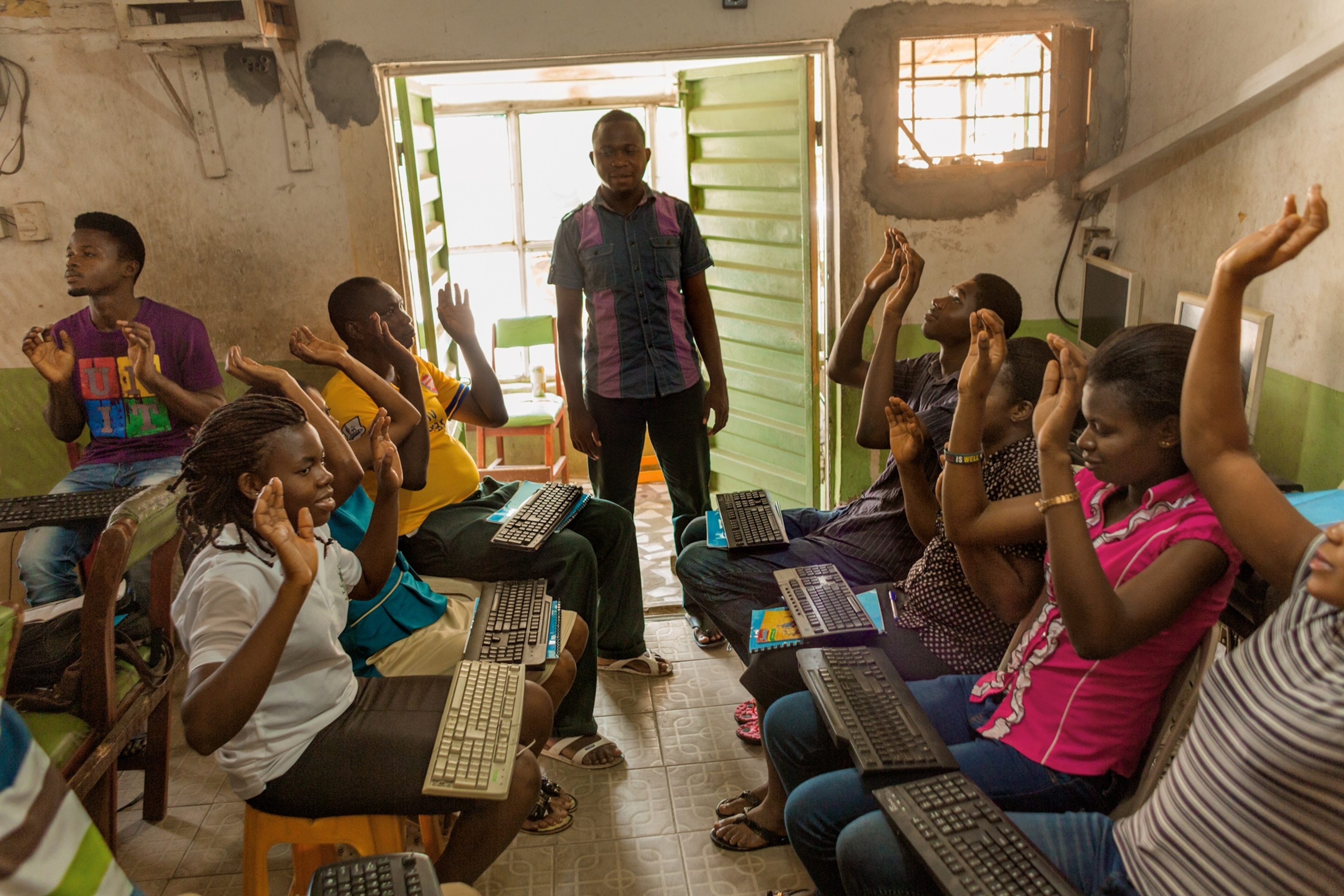
I stood beside the hip-hop deejay for several hours, observing this landscape of impervious beauty and affluence—a tableau that could just as easily be taking place halfway around the globe, in the Hollywood Hills or the Hamptons. Where it could not be taking place, I found myself thinking, was more than 700 miles northeast, in the forests of northern Nigeria, where roughly the same number of individuals—young schoolgirls—were being held hostage after Boko Haram had kidnapped them six days earlier.
The moneyed and the maraudered. Within a few days the New York Times T Magazine would publish a lavish spread in celebration of the former (“In Lagos, the 1% Takes Stock”) even as #bringbackourgirls hashtag activism sounded alarms on behalf of the latter. How do the two worlds coexist? How does Lagos prosper when upper Nigeria roils with chaos?
It takes effort to discern any connection. But after a couple of weeks moving through the city, I began to form questions: If Nigeria is the largest exporter of petroleum in Africa, how can there be continual fuel scarcity, such that Lagosians periodically sit in gas lines for up to four hours? Why does every building in the city—not just the low-income hovels on the mainland but also the sleekest hotels on Lagos Island—rely on generators to supply round-the-clock power? Why do residents continue to pay for electricity that never arrives? Why do the city’s police set up evening checkpoints on the bridges and shake down commuters for cash? Why do the top academics at the University of Lagos carry on with strikes lasting entire semesters? What’s wrong with this picture?
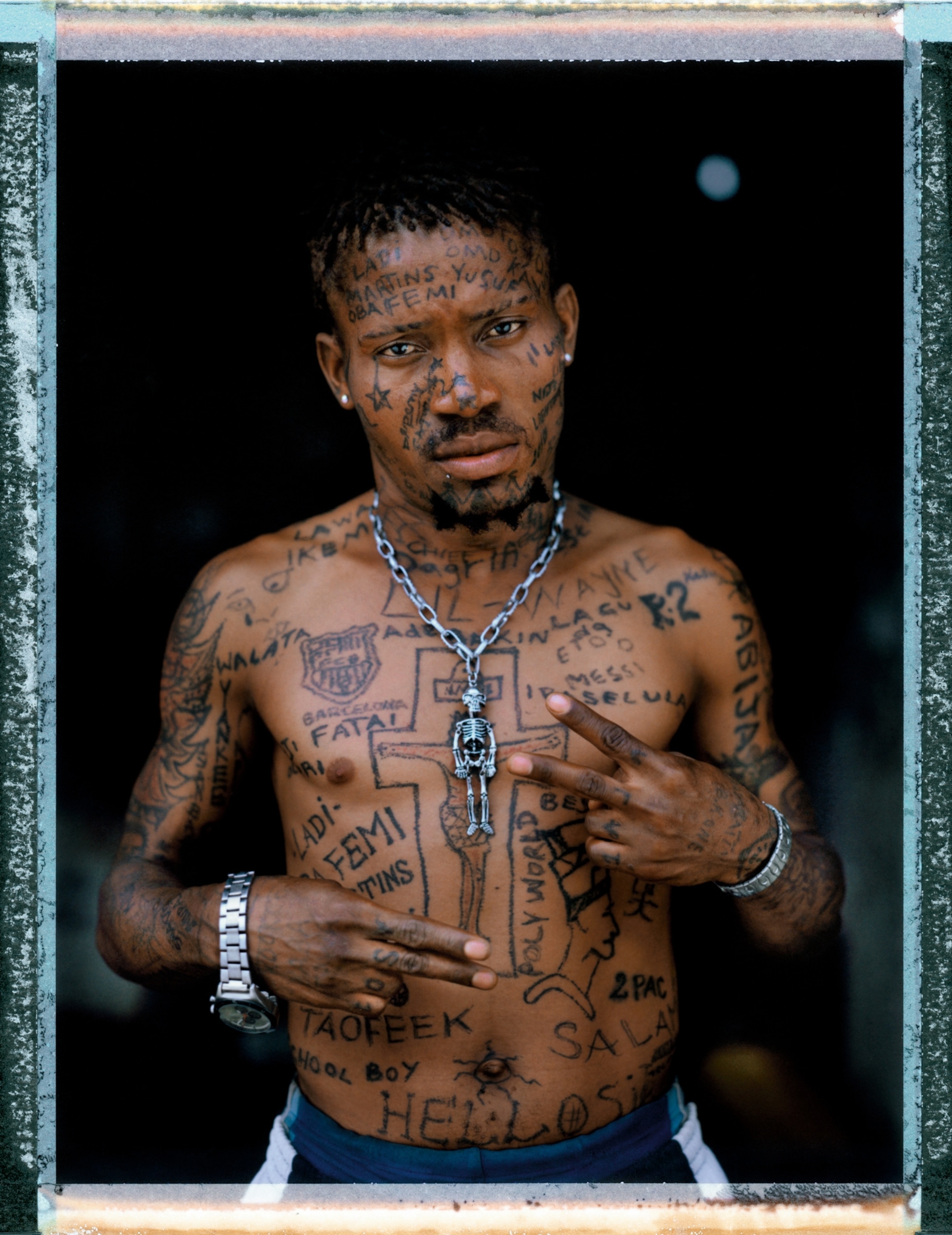

Corruption is what’s wrong—and because much of it exists on the federal level, Lagos is largely powerless to overcome it. The striking professors and the underpaid police are federal employees. That petro-titan Nigeria must import fuel to attempt to meet consumer demand is the result of the petroleum ministry sitting helplessly by while the country’s refineries deteriorate and gas marketers hold back production to jack up prices. And the chronic power outages throughout the city are also the fault of the bureaucrats in Abuja, according to Abike Dabiri-Erewa, who serves in the Nigerian House of Representatives. “And they’re not tapping the gas that’s there. So the problem is that the plants aren’t being powered,” the Lagos representative told me.
Dabiri-Erewa was once a TV reporter. As a federal lawmaker, she witnesses firsthand the kind of wanton corruption that the government-owned Nigerian Television Authority would never have allowed her to cover. “It is a real phenomenon,” she said somberly. “And it’s done with impunity. Someone working in the government owns a private jet. A civil servant steals a billion naira [six million dollars] in pension funds, and he’s walking about freely. Not one federal official has been punished for corruption—not one! Here in Lagos there’s lots of everyday ingenuity. You see people surviving by selling oranges or phone cards. Still, all of this corruption has to be demoralizing for the average Nigerian.”
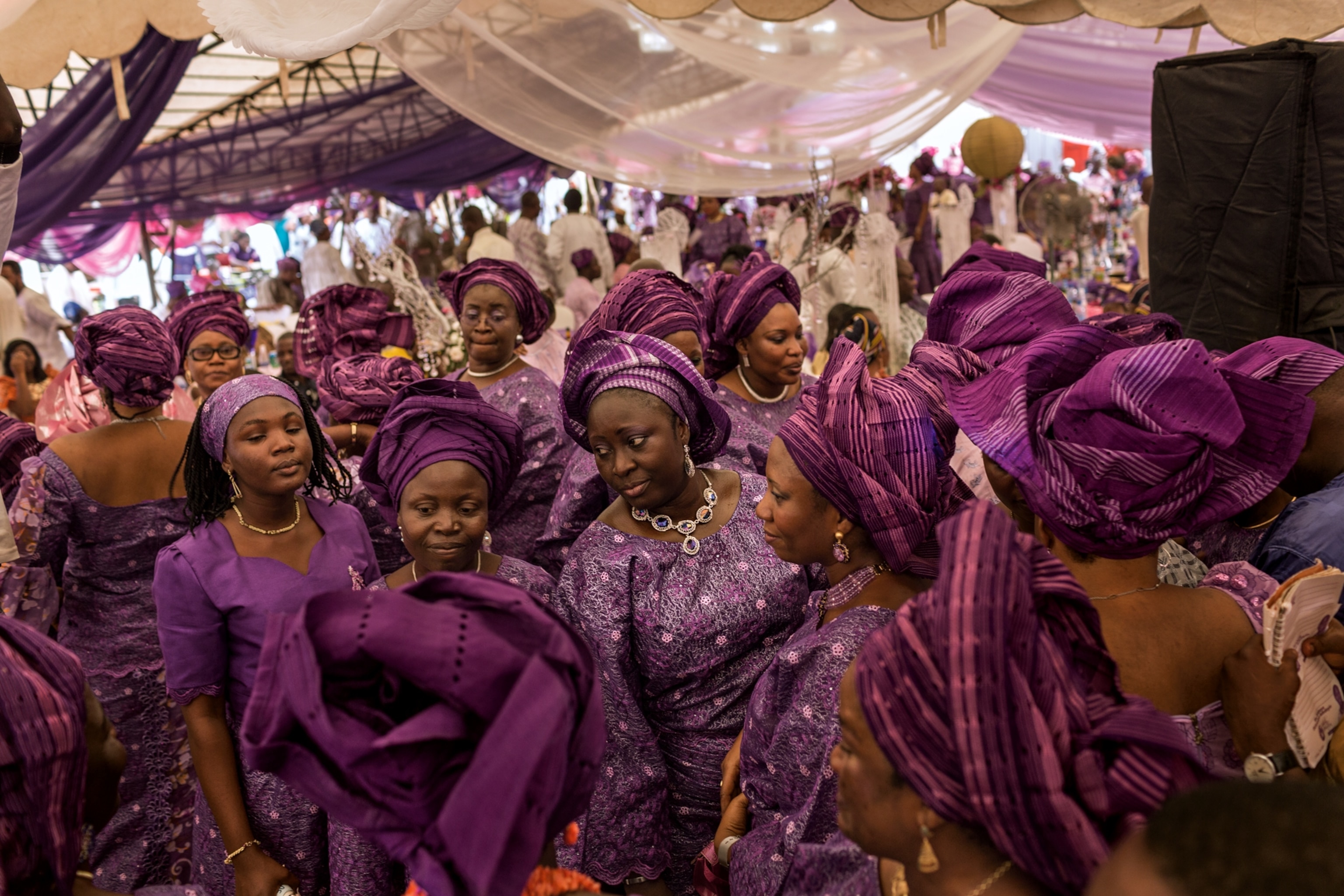
It does more than demoralize: The unscrupulousness comes at the expense of hardworking Lagosians—unless, of course, they’re willing and able to play the game. Chiagozie told me that bureaucratic corruption routinely affected his livelihood. “Most electricians like me are seeking a job with contractors,” he said. “But some of them aren’t engineers. They’re teachers, or something else, and they just happen to have a brother who works in the government. So when a contract comes their way, they hire a subcontractor. And the subcontractor is able to pocket a lot of money by using inferior materials. And they won’t hire me, because I insist on using the best material. If I were to use inferior material, the building might collapse, and then the government would arrest me and take my license away and make me pay for the damage. This happens all the time.”
When I asked Kola Karim if the federal government’s sorry reputation made Western investors wary of doing business in Lagos, the worldly CEO elaborately dismissed it as a nonissue. Companies partnered with companies, not with bureaucrats, he maintained. “What does government do for you anyway, apart from charging you more taxes?” he said. “Look, it’s not about who rules anymore. Lagos is a train that has left the station. And you can only slow it down—you can’t stop it. So it doesn’t matter who comes next. This is the fun of democracy! It’s not about [President] Goodluck Jonathan! It’s about progress! Forget politics!”
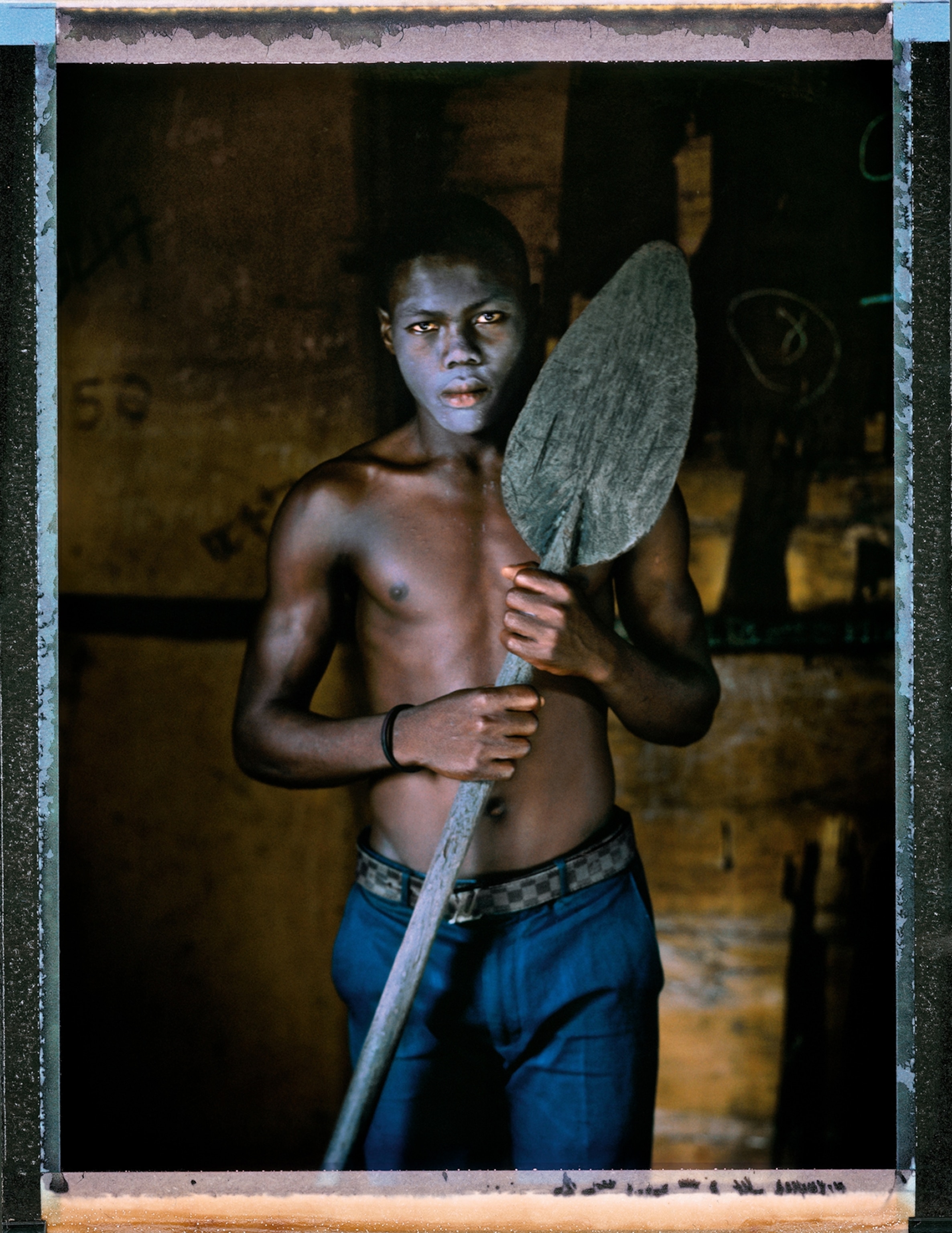
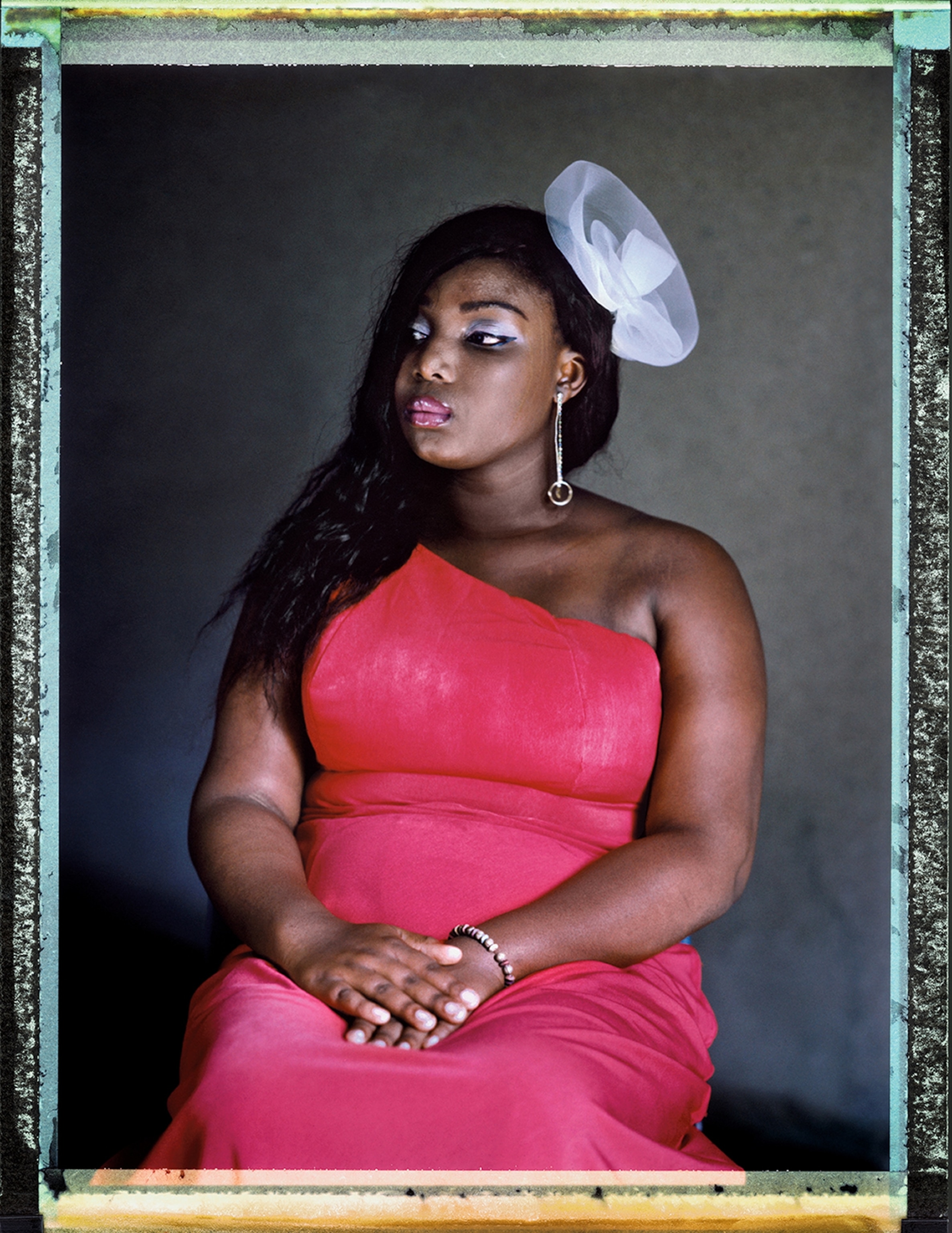
I left the offices of Shoreline pondering these words of Karim, a genuine patriot who generously donates time and money to Nigerian causes. It’s difficult to begrudge him his yellow Ferrari and his vacation homes in Miami and Marbella, on Spain’s Mediterranean coast, and the fact that his children, who live in London, stand little chance of being kidnapped by Boko Haram. Still, Karim said it himself: Lagos may never be stopped, but it can be slowed. It is not immune to the forces paralyzing less fortunate regions of Nigeria. And when I observed to Dabiri-Erewa that Boko Haram’s attacks had spared Lagos, she waved her hand frantically and shook her head. This was not, after all, a far-flung terrorist outfit targeted by American drone missiles. Boko Haram was born in Nigeria and is devastatingly effective. “As we’re speaking now, we don’t know where they’re going to strike next,” she said. “And while they’re planning, the federal government seems to have no clue.”
The city remains, for now, safe and a home for the bold, where even those who could be forgiven for despairing are instead eyeing the next rung on Lagos’s golden ladder. I was told about a hustling fellow named T. J. who apparently had a knack for acquiring—how, it wasn’t entirely clear—a reliable inventory of fashionable used clothes, which he sold in a grubby stall on Market Street, within walking distance of the Nigerian Stock Exchange. The lanky entrepreneur greeted me, sized me up, and then proceeded to pull out several plastic garbage bags filled with men’s shirts.
“Even when I was small, I believed there was something behind me, driving me,” T. J. said as he riffled through the shirts to find something appropriate for me. “I’m an incurable optimist. I don’t believe in negativity. My customers, they love this about me. I cannot call myself a pastor, but I speak the truth. And the truth is, I love this country. People here are suffering. I’m suffering. And the government, they won’t do the right thing. But it’s all about attitude. I can feed myself. And one day I’ll do something else.”
Still digging in his bag of used clothes, the salesman said, “Right now I’m just trying to find the leverage.”
